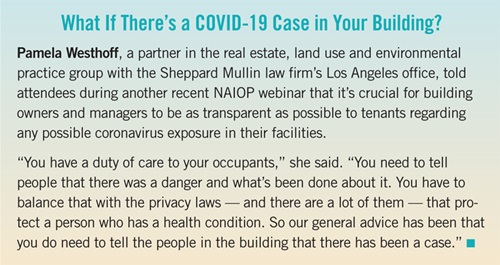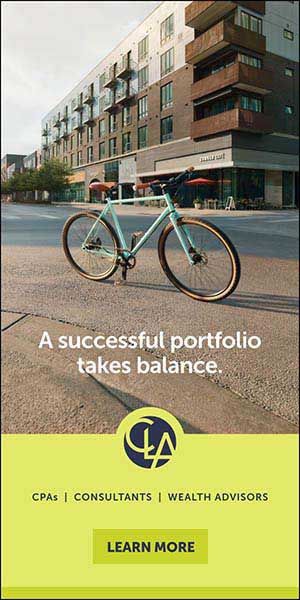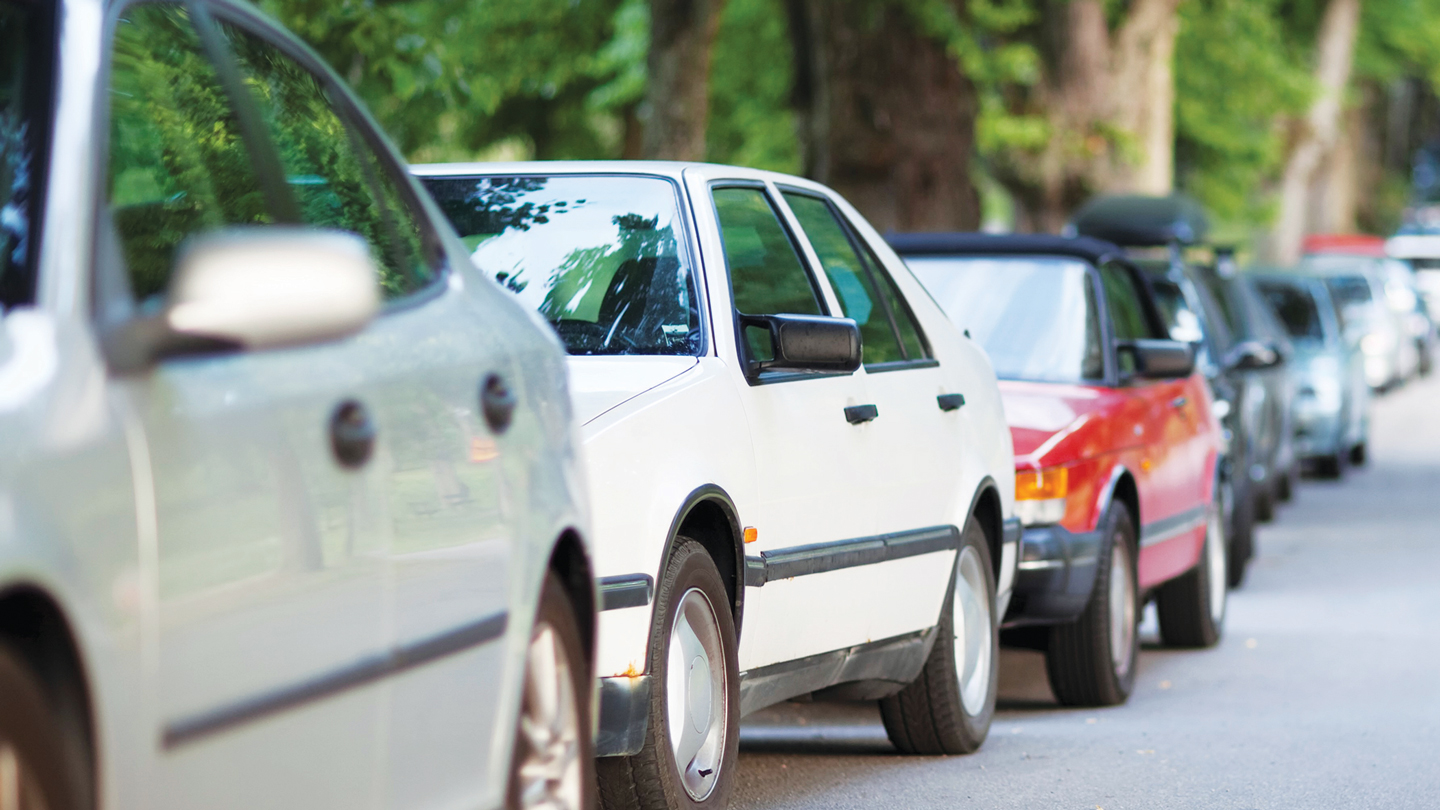Property Owners Must Prepare for Potential COVID-19 Liability Issues

During a pandemic, business-interruption insurance may not be a panacea.
As the COVID-19 crisis continues to affect the U.S., commercial property owners need to prepare for potential liability issues arising at their buildings, according to attorney George Pincus of Stearns Weaver Miller, P.A., in Fort Lauderdale, Florida, during a recent NAIOP webinar.
He offered these tips to protect properties, tenants and landlords from liability:
Communicate with tenants. A primary way to mitigate potential liability is by always being a “reasonable and prudent” commercial property owner and operator. That is one who conducts business with “skill, diligence, care, prudence and foresight,” according to Law Insider’s legal definitions dictionary. Establish and frequently use communications channels with tenants (including those working remotely) such as e-mail, websites or written notices. Ask them to agree that these are the ways you will communicate through the crisis. Update tenants frequently on the status of the building. Provide as much information as possible. This includes hours and services, and building access procedures. If the building’s janitorial services are not equipped to perform decontamination or extraordinary disinfecting, explain why. Provide reminders that tenants should review and institute procedures for cleaning requirements.
Comply with all laws/regulations. Remind tenants on a regular basis that you will comply at all times with city, county, state and federal laws, rules and regulations regarding access to commercial properties, and, if the government declares that the building must be shut down, you will shut it down. Work with an attorney regarding “essential services” that are exempt. Determine which tenants qualify as essential services, Pincus said.
Document, document, document. Have a consistent incident report procedure in place with the management and maintenance team to handle COVID-19 cases in your buildings. Train staff to prepare a detailed written report. This should include which tenant is reporting the issue, who are the people involved, when it occurred, what happened and steps that the property owner is taking to disinfect the affected areas of the building. Retain copies of the incident reports and send copies to your attorney as well.
Get in touch with CGL carrier. Contact your commercial general liability (CGL) carrier when an incident occurs, even if you will not make a claim at that time, Pincus said. While you are not making a claim, use the information to report to your CGL carrier that there was an incident at the insured property. Next, submit the incident report and detail the remedial steps you took. Make sure you ask the CGL carrier what other reasonable steps it wishes you to take. However, don’t give the carrier a coverage defense where it can say that you did not do what it wanted you to do in response to the event.
Know what’s covered/what’s not in your insurance policies. Business-interruption insurance policies should be reviewed for coverage, but ask yourself if you have an insurable loss that will give you access to your business-interruption coverage. Second, is there an exception in your policy that the COVID-19 disaster falls under?

A key problem is that for a business-interruption claim, insurers are looking for physical damage to the building, such as from a fire or hurricane. Pincus said get an attorney who specializes in insurance coverage to review the policy to make this determination.
“It is too soon to determine how the courts are going to interpret COVID-19 social distancing and government shutdowns of private property as being casualty events within the language of the insurance policy,” he said. “Case law is all over the place. I don’t know how it will be resolved, but I am not optimistic.”
What’s worse, he said that many policies in effect exclude damage due to virus or bacteria.
Ron Derven is a contributing editor for Development magazine.






